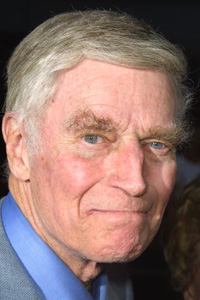There may come a time when it is too difficult for you to care for your loved one at home. As the disease progresses, your job will become increasingly difficult — despite a variety of community services — to the point where long-term residential care may be the most responsible option.
Making the decision
As you come to terms with residential care, you may grapple with feelings of guilt that you're abandoning the person. You may assume incorrectly that people who wind up in nursing homes were discarded by their families. But the truth is just the opposite. Most families exhaust every other option before resorting to this type of arrangement, and, contrary to popular belief, most families do stay connected to the individual and visit often. You can also draw comfort in knowing that there are an increasing number of good programs that specialize in care and treatment of people with Alzheimer's disease.
Better understanding for Alzheimer's patient care
There has been a shift in the general philosophy of caring for people with dementia. In the past, the general consensus was that they should be continually oriented to reality. For instance, if a person talked about visiting a sister who had died, the caregiver would remind the person what year it was and that the relative wasn't alive. Experts recommended responses like "No, I'm not your daughter, I'm your nurse."Experts now believe that these efforts are futile and only frustrate the individual. Today, the preferred approach is to validate the person's feelings. For instance, responses like "You must really love her" to a man who talks about his dead wife, rather than, "She died 8 years ago," fosters emotional well-being. Repeated validation may also curb some behavior problems associated with frustration.
Resurrecting the patients remove frustration
There is also more of an attempt to resurrect what's left of the person's "self." In high-quality programs, caregivers try to understand each person's past interests and plan activities accordingly. If, for example, a person loved to dance, he or she may still derive considerable enjoyment from music and dance activities at a center.
In one case involving someone who had been a newspaper reporter most of his life, his caregivers set up a makeshift newsroom with a typewriter and assigned him the task of writing a newsletter for the center. He was able to enjoy this until typing became too frustrating. Although his caregivers eventually removed the typewriter, they still reinforced the idea that he was working in a newsroom. In another case, a caregiver arranged for several former stamp collectors in the assisted-living facility to see a stamp exhibit that was in town. Despite their disease, the caregiver said they seemed to thoroughly enjoy the experience.
Real facts
Over half of all individuals living in nursing homes have Alzheimer's disease or another dementia.
Evaluating a home for Alzheimer's patient
Keep in mind that not all specialized Alzheimer's care is equal. When you visit a home, try to determine what makes it unique.For up to date information on the wide variety of options available and how to evaluate them because the Alzheimer's patient may live for as long as 4 to 8 years and during that time the patient will gets worse in a regressive state, contact the Mary Joseph Foundation.
Please remember these
When you visit a facility, ask plenty of questions, such as these:
- How is the program geared specifically for people with Alzheimer's disease?
- Are the caregivers trained in the treatment of Alzheimer's?
- Is it a homelike environment?
- Are residents engaged in meaningful activities?
- Does the facility incorporates design features that can be helpful to those with Alzheimer's, such as enhanced lighting, color-coded hallways, and plenty of walking room?
- Is the environment safe? How secure is it for people who wander?
- How would an upset resident be handled?
- How many people live there? What's the ratio of staff members to residents?
- Can medical care be given on site if needed? Who provides it? Skilled nurses? Visiting physicians?
- What personal items can the resident bring?
- Are skilled professionals — including registered nurses, licensed practical nurses, and certified nursing assistants — on duty at all times?
- How long and often may family members visit?
- What's the cost? Does the facility requires you to pay privately?
- If the patient needs to change to Medicaid funding after a few years, will he or she be able to remain at the facility?
- Under what circumstances would a resident be required to leave?
Remember we are here to help.
Mary Joseph Foundation a non-profit organization for Alzheimer's disease.
